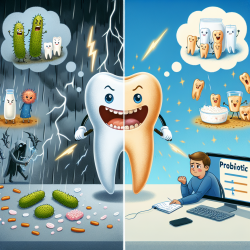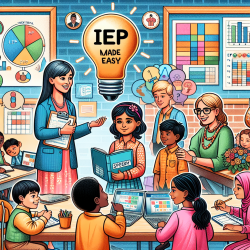Introduction
Phyllosphere microbiology, the study of microbial communities on plant leaf surfaces, is a burgeoning field with significant implications for biotechnology, agriculture, and even medicine. The recent review by Rangel and Leveau (2024) highlights the potential of phyllosphere microbiota to influence various sectors. For speech-language pathologists, especially those working with children, understanding these principles can lead to innovative approaches in therapy.
Understanding Phyllosphere Microbiology
The phyllosphere is a unique microbial habitat, rich with bacteria, fungi, and other microorganisms that adapt to survive on leaf surfaces. These adaptations include tolerance to UV light, desiccation, and nutrient scarcity. Such resilience and adaptability can inspire new methodologies in speech therapy, particularly in fostering resilience and adaptability in children.
Applications in Speech Therapy
While the direct application of phyllosphere microbiology in speech therapy might not be immediately apparent, the underlying principles of adaptation and resilience can be translated into therapeutic practices. Here are some potential applications:
- Resilience Building: Just as phyllosphere microbes adapt to harsh environments, speech therapy can incorporate strategies that build resilience in children, helping them adapt to communication challenges.
- Innovative Techniques: The bioprospecting approach in microbiology, which involves searching for valuable traits, can be mirrored in therapy by identifying and leveraging unique strengths in each child to enhance their communication skills.
- Environmental Adaptation: Understanding how microbes interact with their environment can inform therapists about the importance of modifying the therapy environment to better suit the needs of the child.
Encouraging Further Research
Speech-language pathologists are encouraged to delve deeper into the principles of phyllosphere microbiology to uncover more ways these concepts can be applied to improve therapy outcomes. Engaging in interdisciplinary research can lead to the development of novel therapeutic techniques that are both data-driven and effective.
Conclusion
The intersection of phyllosphere microbiology and speech therapy presents an exciting frontier for innovation. By adopting a mindset that values resilience, adaptability, and environmental awareness, therapists can enhance their practice and create better outcomes for children. To read the original research paper, please follow this link: Applied microbiology of the phyllosphere.










